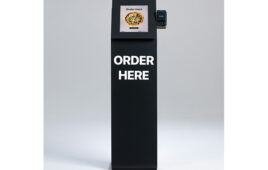 Convenience store operators are called upon to continually increase their knowledge base to keep up with the ever-changing needs and demands of their customers. And one of the things they’ve recently been required to add to their fund of knowledge is the acronym PHEV — plug-in hybrid electric vehicles.
Convenience store operators are called upon to continually increase their knowledge base to keep up with the ever-changing needs and demands of their customers. And one of the things they’ve recently been required to add to their fund of knowledge is the acronym PHEV — plug-in hybrid electric vehicles.
A plug-in hybrid electric vehicle is different from the standard electric vehicle in a couple of significant ways. First, it features a bigger battery. It also has a better all-electric range than a traditional hybrid and brings together a combustion engine with an electric motor. That means they can use gas, battery power or both.
While traditional hybrid autos can charge their smaller batteries via the combustion engine and regenerative braking, for the bigger PHEV battery, it’s better to be plugged into a regular household outlet.
While there is some variation among different models, in general an average wall outlet can fully charge a PHEV in six hours. A dedicated outlet featuring increased voltage can charge a plug-in hybrid in about three hours.
A higher-voltage charger can accomplish the same thing in roughly 20 minutes.
Once a PHEV’s battery quits, its combustion engine can kick in and give the driver several hundred more miles provided by conventional
gasoline.
Locating a charging station for a PHEV can prove a challenge at present. Drivers can search the internet for nearby businesses that have them, and the U.S. Department of Energy provides a free database of public charging stations. There are also downloadable apps that highlight and profile charging stations in their area.
The implications for convenience stores are obvious. Charging stations are critical for allowing drivers to take advantage of these more convenient, accessible and cost-effective vehicles. They provide shorter charging times than wall sockets, allowing motorists to get moving again sooner.
According to Boston Consulting Group Inc., the number of gas stations nationally has been dropping over the past 30 years, with more at risk of closing without changes to their business model. Consumers will increasingly be on the lookout for plug-in hybrid car charging stations in the years to come, with retailers that offer them benefitting from the increased customer traffic.




